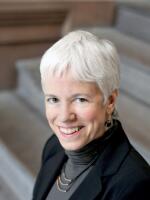Ethics watchdogs say they are dismayed with a plan developing between Governor Kathy Hochul and New York state lawmakers that would replace the troubled state ethics commission with a new entity.
Hochul, a Democrat, pledged to scrap the Joint Commission on Public Ethics, or JCOPE. It was widely viewed as being controlled by former Governor Andrew Cuomo and protecting his interests. Cuomo resigned in August over multiple scandals.
But civic groups, including Common Cause, the League of Women Voters and NYPIRG, say a proposal to replace JCOPE isn’t much better than the current commission.
Reinvent Albany’s Rachael Fauss says under the plan, the governor and legislative leaders would retain the power to appoint representatives to the commission, along with the state’s attorney general and comptroller.
“What we’re hearing is that the Legislature and the governor have agreed to replace JCOPE, but unfortunately with something that has the same fatal flaw,” said Fauss, who added that what the civic groups want is an “independent ethics commission that was not directly appointed by the people that would be regulated by them.”
Reinvent Albany and the other groups want a two-tiered system that would help shield the commission from political influence. Under that plan, the governor and legislative leaders and other statewide elected official would all choose an appointee, but those appointees would then select a five-member commission that would directly handle ethics complaints and oversee investigations.
Hochul proposed a different plan in her state budget proposal in January. The governor wanted to create a new commission run by the deans at 15 of New York’s leading law schools. The deans, or a representative they appoint, would serve on a rotating basis.
Fauss says the deans would still be included in the plan now being discussed with the Legislature, but their role would be reduced to vetting the chosen appointees.
“All they would be doing is essentially replacing the role of the state police or the people who do the background checks for people who are appointed to state positions now,” Fauss said.
Fauss and the members of the other watchdog groups say lawmakers are missing an historic opportunity to create a truly independent panel to police a state government that is prone to scandal.



